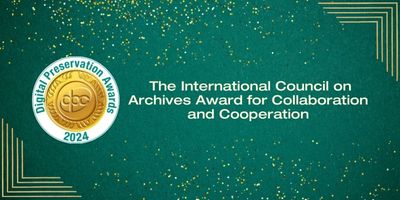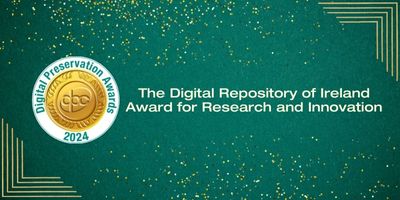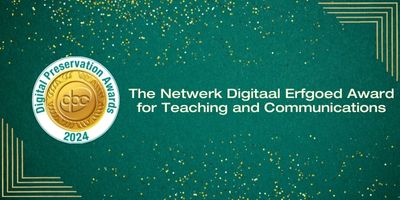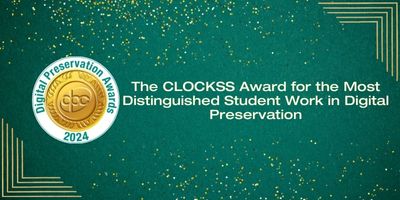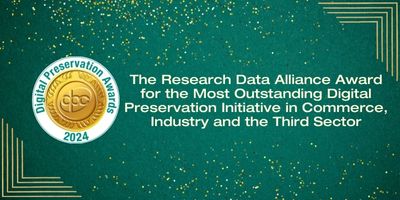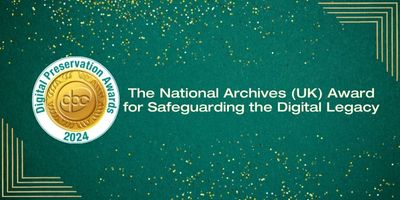The National Archives (UK) Award for Safeguarding the Digital Legacy
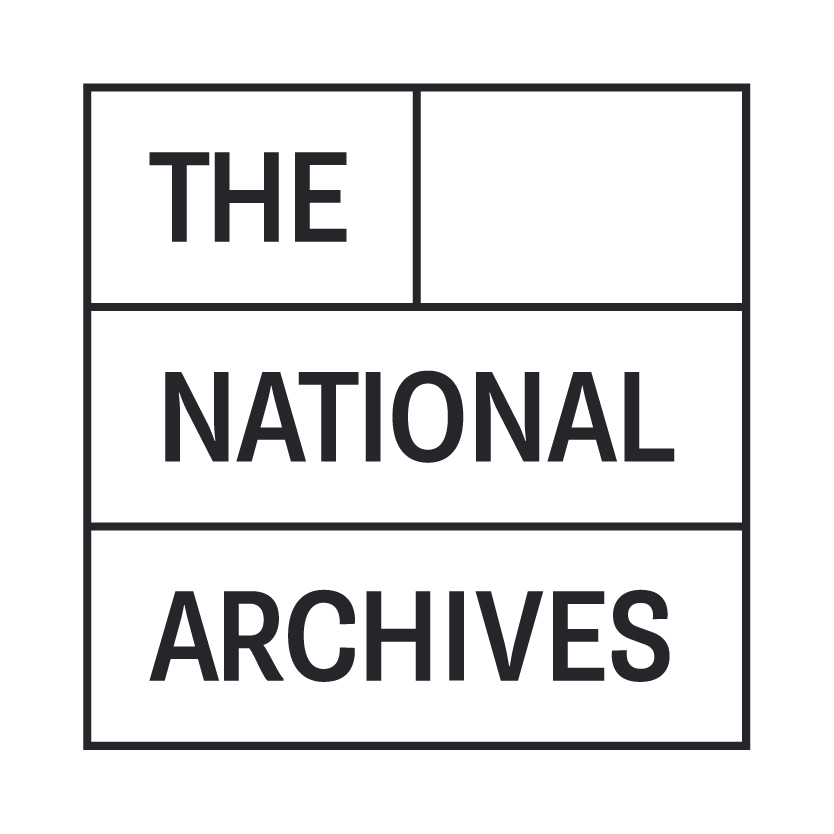
This award highly commends the practical application of preservation tools to protect at-risk digital objects. The prize in this category consists of a trophy to be retained by the recipient, certificates for participating individuals, and a cash prize of £1000 payable to the lead nominee’s organization.
The DPC Member vote is now open!
DPC Members, login to reveal the link to the voting form and select your first and second choices for this category.
Votes must be cast online by 1200 (BST/UTC+1) on Monday 15th July.
Each Full Member, Associate and Allied Organisation of the DPC may submit one vote.
Meet the finalists
Arquivo.pt catalog of tools for digital preservation
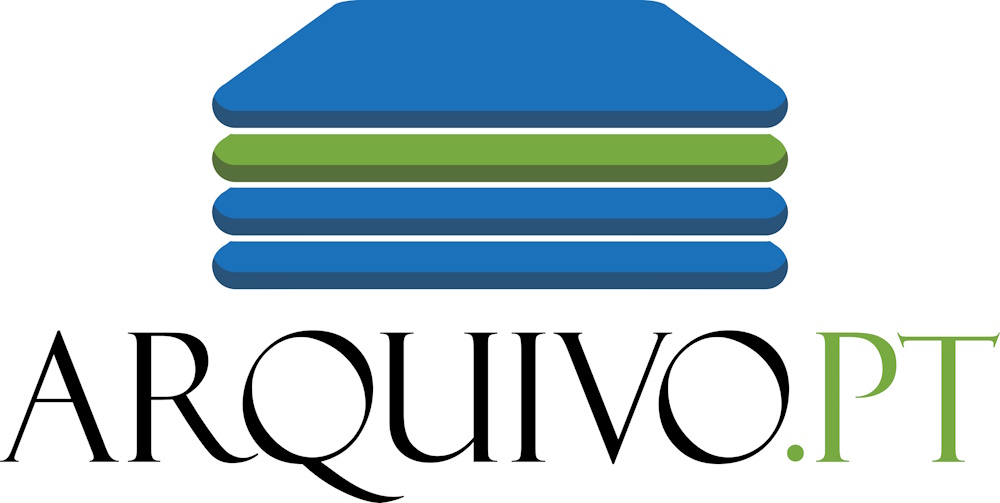 |
Nominee: Fundação para a Ciência e a Tecnologia (FCT) Information that rules modern-day lives is born-digital and disseminated online. However, invaluable digital objects published online have been continuously lost.Arquivo.pt is a public infrastructure which supports the preservation of digital objects published online to safeguard this digital legacy for future generations. Thus, in October 2023 after 15 years of research and development, Arquivo.pt released a Catalog of 13 innovative tools to support the preservation of at-risk online content, from acquisition to dissemination (e.g. search and access, APIs, training, open data sets, exhibitions). Arquivo.pt safeguards online digital objects of worldwide interest for research and education. |
DDLD – living archive
 |
Nominee: Defensores de la Democracia (DDLD) DDLD – living archive is the first and only repository preserving and cataloguing the work produced by killed journalists in Mexico. Over 163 reporters have been killed in Mexico since 2000. However, their work is largely unknown and faces the risk of disappearing, either because it was published in websites that lost their domain with the death of their founders or because their content was taken down from social media. Through the DDLD – living archive, over 19,000 published news pieces from 83 journalists killed in Mexico between 2000 and 2023 have been preserved. |
Digital Pasifik - Preserving stories, knowlege and tāonga
 |
Nominee: Matirini Ngari and Ulu Afaese Digital Pasifik is an online portal providing an easy single access point to digitised Pacific cultural heritage items held in different museums, galleries, and library collections around the world. The platform connects diverse and dispersed people with their distributed treasures and cultural materials in a way that had not previously existed. Digital Pasifik serves as a bridge between institutions, which often hold and preserve these items and records, and the people of the Pacific - empowering people in and of the Pacific Islands by enabling them to see, discover and explore items of digitised cultural heritage that are held in collections around the world. |
National Digital Newspaper Library of Mexico: preservation of digital heritage
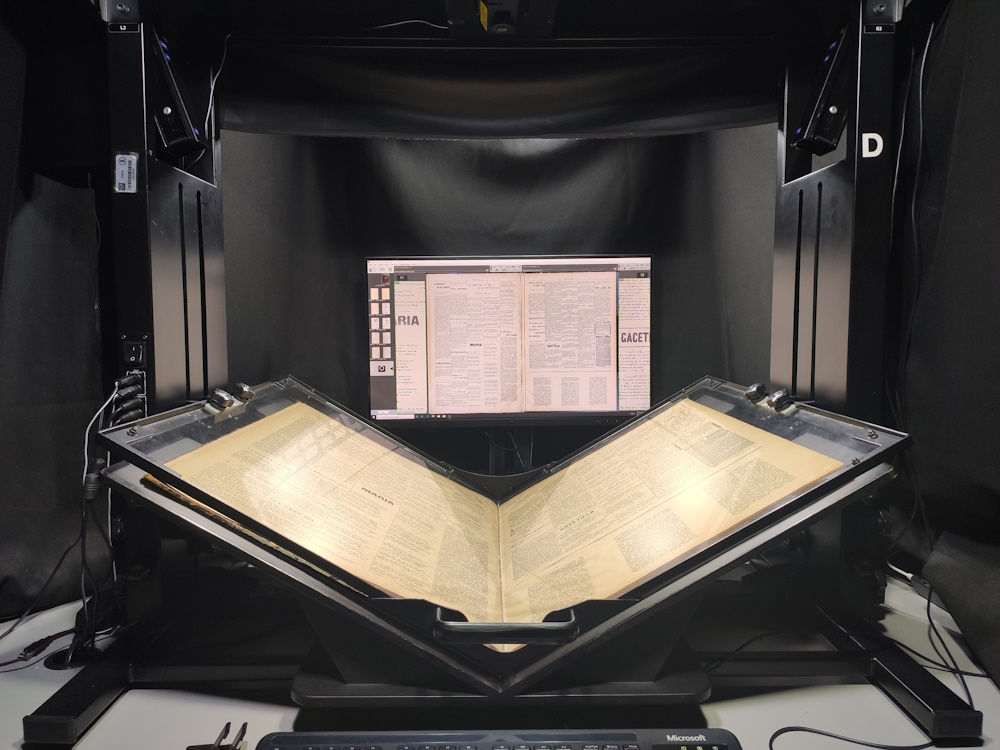 |
Nominee: National Newspaper Library of Mexico / Coordination of Innovation and Digital Strategy – Institute of Bibliographic Research - National Autonomous University of Mexico (UNAM) The National Digital Newspaper Library of Mexico (HNDM) is a virtual repository of historical periodical publications aimed at promoting and facilitating the preservation and dissemination of the country's digital newspaper heritage. It is the largest virtual repository of images of newspapers and magazines printed in Mexico between 1722 and 2023, with nearly nine million digital pages. Initially, the HNDM focused on digitizing microfilms and printed documents, and providing access through a web platform. In 2019, the project to implement digital preservation in the HNDM began, which included the adoption of standards, the creation of regulatory frameworks, the development and application of software tools, and the enhancement of staff capabilities. The implementation of digital preservation in the HNDM represented a significant advancement in protecting the digital heritage safeguarded by the National Newspaper Library of Mexico (HNM) and the incorporation of a new paradigm for managing its digital collections. |
The Research Data Alliance Award for the Most Outstanding Digital Preservation Initiative in Commerce, Industry and the Third sector
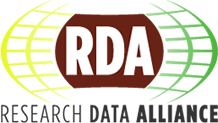
This award celebrates the adoption of digital preservation tools and approaches in an organization that is not explicitly a memory institution. The prize in this category consists of a trophy to be retained by the recipient, certificates for participating individuals, and a cash prize of £1000 payable to the lead nominee’s organization.
The DPC Member vote is now open!
DPC Members, login to reveal the link to the voting form and select your first and second choices for this category.
Votes must be cast online by 1200 (BST/UTC+1) on Monday 15th July.
Each Full Member, Associate and Allied Organisation of the DPC may submit one vote.
Meet the finalists
‘A Lovely Day for Digital Preservation’: Guinness Archive adverts project
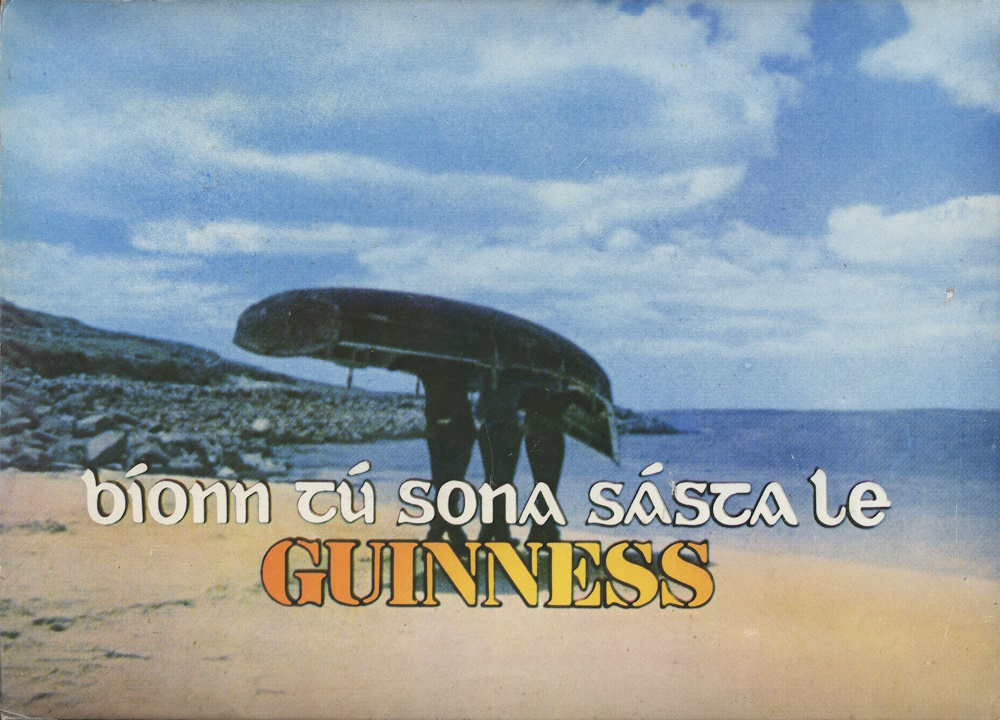 |
Nominee: Guinness Archive The aim of the project was to digitise, remaster and preserve the brand’s advertising legacy of television adverts on film and make the collection publicly accessible. The collection captures moments in cultural and social history spanning a 40 year period, and offers an insight in changing representations of Irishness both at home and overseas. In partnership with the Irish Film Institute and Coimisiún na Meán, the project brought together all known advertising work held across 3 institutions. The project created a framework from which all other film stock related to Guinness was subsequently digitised and ingested into digital preservation systems. |
Cloud-based holistic digital preservation at HSBC
 |
Nominee: HSBC HSBC initially introduced its digital archive system in 2015, and in 2022, we embarked on a project to upgrade and migrate the system to the cloud. A key objective of this upgrade was to eliminate the need for a separate cataloguing tool, seamlessly integrating our ISAD-G descriptive metadata with our digital assets. This integration enables users to create and access both technical and descriptive metadata within a unified system. By transitioning to the cloud and utilising a shared server platform, we have achieved significant efficiency and sustainability improvements, moving away from isolated physical servers spread across multiple HSBC data centres. |
NHS research records: Reducing Risk
 |
Nominee: Barts Health NHS Trust Barts Health NHS Trust has implemented a specialist digital archive that ensures records from clinical trials are preserved, accessible and usable for their whole retention period (mainly 25 years). This service is now being extended to other NHS Trusts who are finding it difficult to procure an archive themselves; thus helping to preserve data within wider healthcare research and raising awareness of digital preservation in this area. Barts is at the forefront of digital preservation for research study records as this is a complex and challenging environment that is just starting to generate discussion. |
The CLOCKSS Award for the Most Distinguished Student Work in Digital Preservation

This award encourages and recognizes student work in digital preservation. The prize in this category consists of a trophy to be retained by the recipient’s institution, certificates for participating individuals, and a travel grant covering the costs of attendance at an international conference in 2025.
Meet the finalists
Assessing the Condition of Net Art Using Emulation as a Service (EaaS)
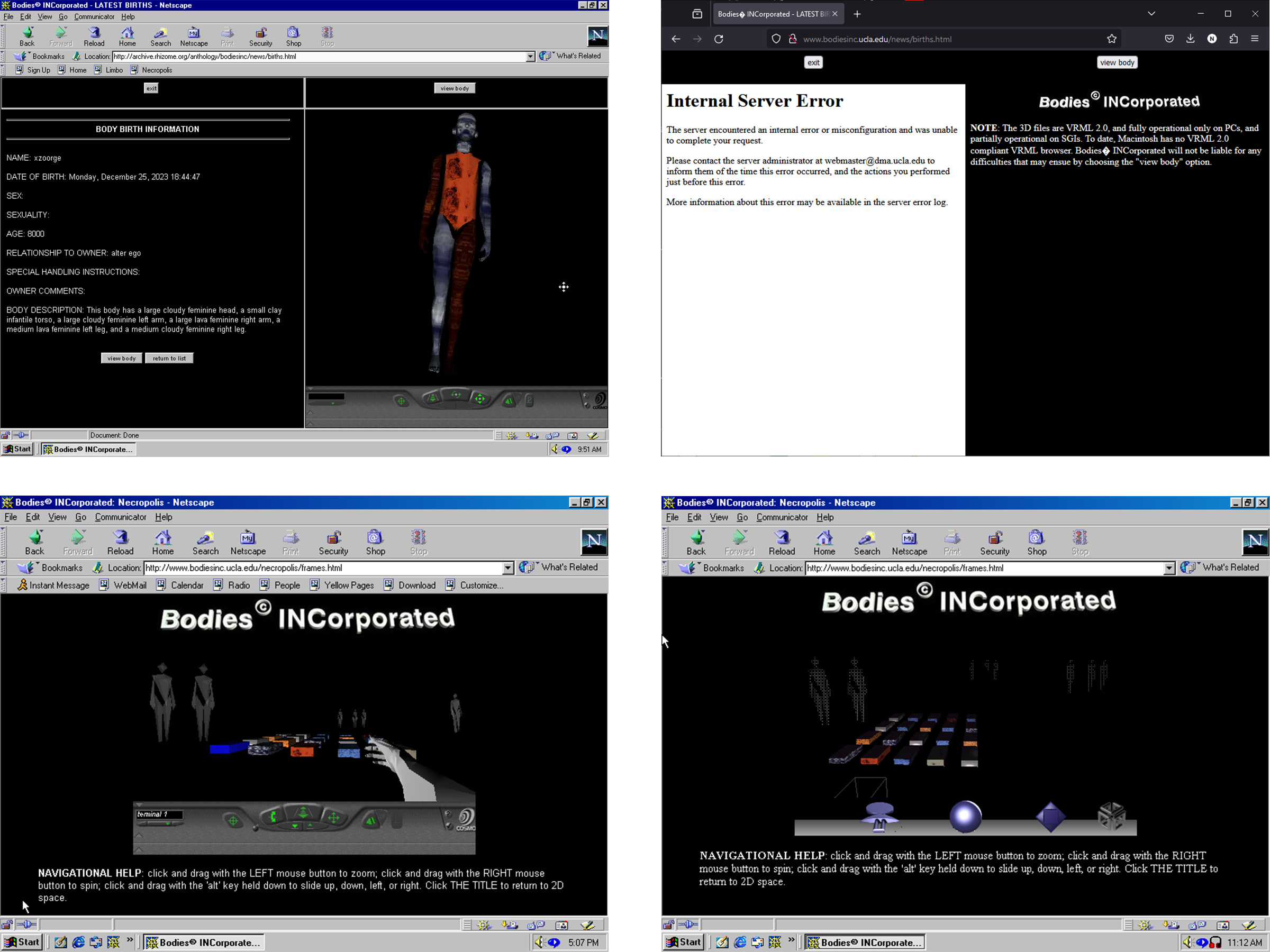 |
Nominee: Nicole Savoy studying at the Academy of the Arts Bern How do you know if something’s broken if you don’t see an error message? How do you classify an error without knowledge of how the work should appear or function in the first place? These questions were at the core of Nicole Savoy’s master thesis, which explores methods for assessing the condition of digital artworks that use the Internet as an artistic medium. Due to the Web’s ever-changing technical environment, many features of these artworks, like videos or gifs, become unviewable in current browsers. Using EaaS (Emulation as a Service) as a tool to recreate period-adequate software environments to observe these works in, conservators can piece together a comprehensive understanding of an artwork’s intended performance. |
Bish Bash Backup: A Blog about converting metadata to PREMIS
 |
Nominee: Alex Habgood studying at University College London This student blog was created as part of the Digital Curation module on the Archives and Records Management Programme at University College London. The task was to undertake a personal project related to digital curation, gain experience in a method or area of practice, and create a series of blog posts reflecting on this and communicating their learning to fellow professionals and diverse practitioners. The blog, “Bish Bash Backup”, reflects on a project to develop a simple prototype for implementing PREMIS metadata. |
Preservación de documentos digitales: el caso de Wikimedia México / Preservation of digital records: the case of Wikimedia Mexico
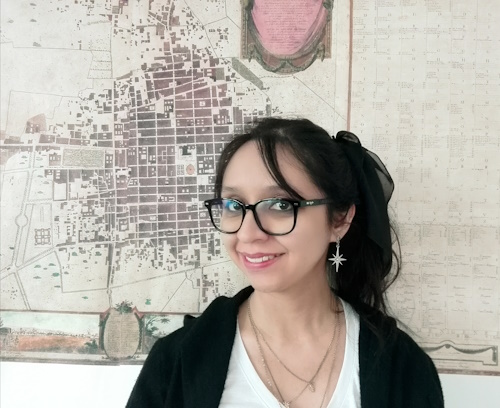 |
Nominee: Claudia Muñoz studying at Universidad Nacional Autónoma de México Mexican NGOs work on a wide variety of social problems related to technology, gender, violence, and support for social causes. However, their information and history, produced and disseminated in digital formats, are at risk because the organizations lack adequate digital preservation strategies to ensure the permanence and access of their information in the long term, which is aggravated by problems such as the digital divide or lack of budget. Therefore, Wikimedia Mexico, an NGO that promotes free access to knowledge, is taken as an example to establish digital preservation strategies according to its characteristics and context. |
Web Archives for All? Towards Equitable Access to UK Public Sector Web Archives
 |
Nominee: Nicole Hartland studying at the University of Dundee Web Archives for All? is the first holistic assessment of access and descriptive practices across UK Public Sector Web Archives, with a focus on developing community best practices to begin to address the vital issue of working towards just and equitable access to our shared online heritage. The study is grounded in qualitative coding and analysis of interviews with web archive managers and curators across the five UK Public Sector Web Archives, which revealed a wide range of approaches across description, providing access, and understanding users, and highlighted current challenges and future opportunities for more equitable access to web archives. |
The Netwerk Digitaal Erfgoed Award for Teaching & Communications

This award distinguishes excellence in outreach, training and advocacy. The award includes a cash prize of £1000, a trophy and certificates.
The DPC Member vote is now open!
DPC Members, login to reveal the link to the voting form and select your first and second choices for this category.
Votes must be cast online by 1200 (BST/UTC+1) on Monday 15th July.
Each Full Member, Associate and Allied Organisation of the DPC may submit one vote.
Meet the finalists
Dungeons & Documents
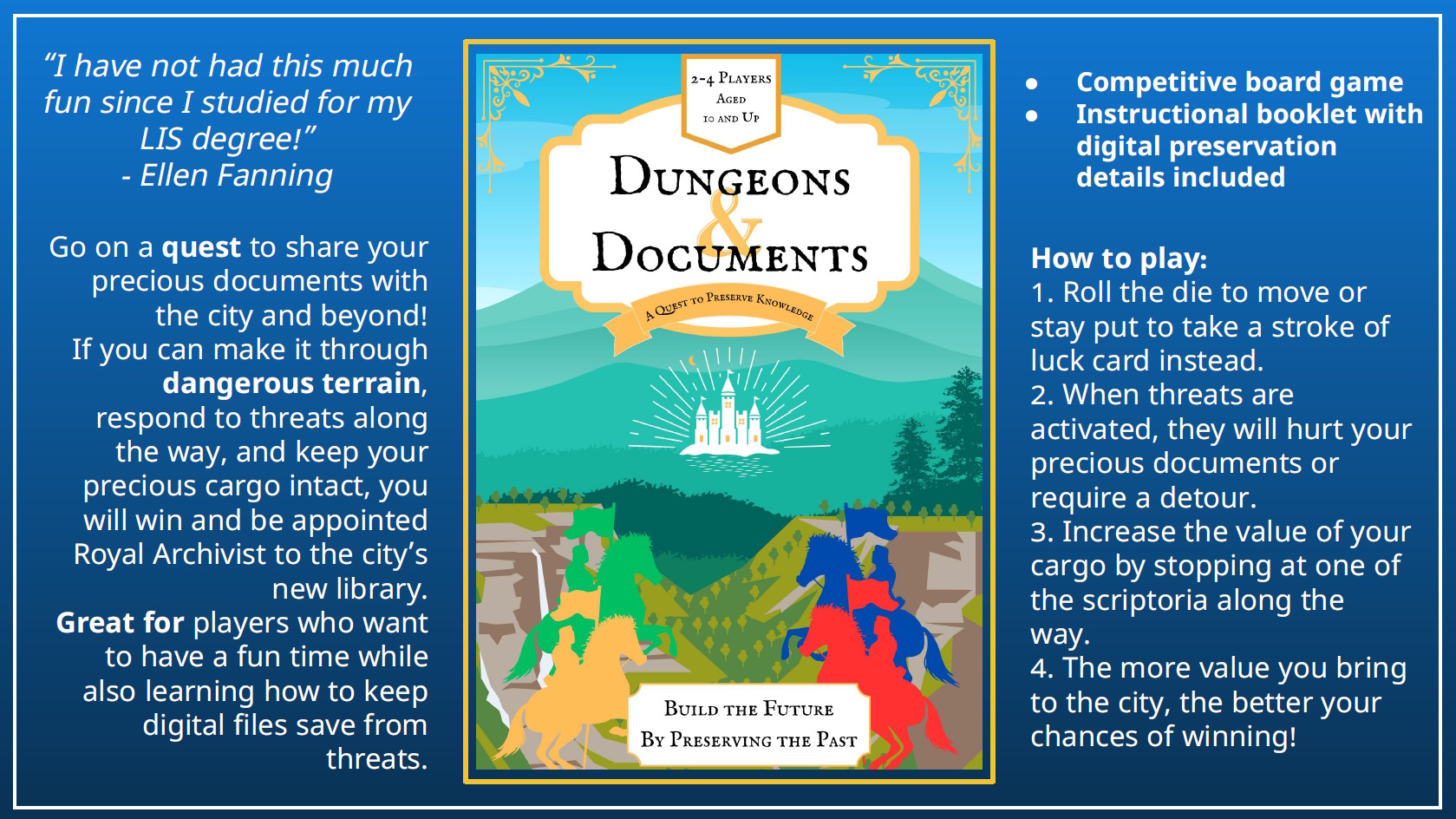 |
Nominees: Amber Cushing, Lena Böse, Feargal Keenan, Ellen Fanning at University College Dublin For the Digital Curation: Core Concepts module at University College Dublin, postgraduate students complete a “game” assignment consisting of 3 deliverables:
Bose, Fanning & Keenan creatively used the concept of Dungeons & Dragons to structure the process of digital preservation as a journey. |
Preserving Books for Future Generations
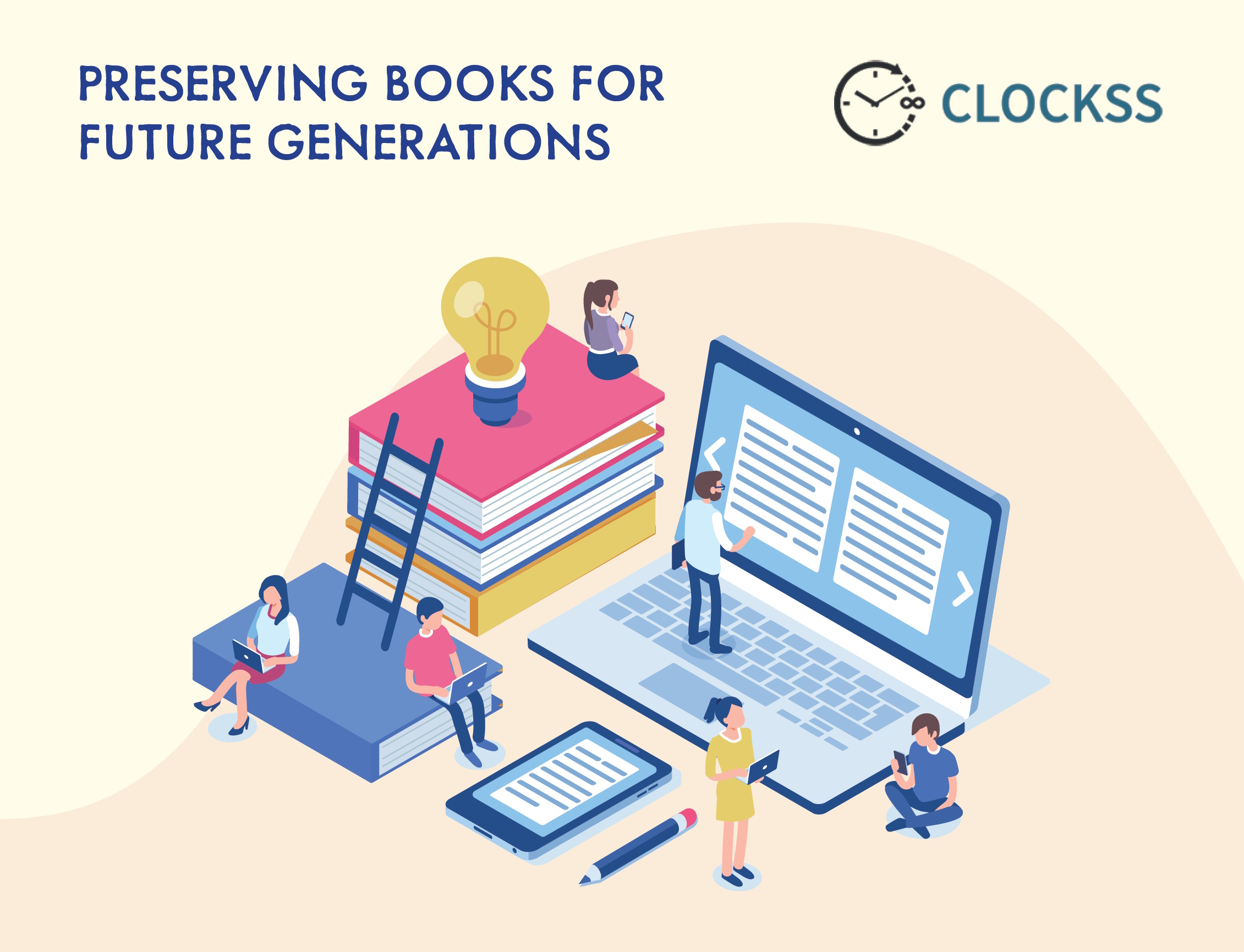 |
Nominee: CLOCKSS Did you know that 25% of academic journals are known to be at risk? For academic books, the figure is higher but no one knows precisely how high. Key to changing this is to engage book publishers, academic libraries, and researchers and CLOCKSS convened a working group in 2023 to do just this. The group produced a guide on digital preservation and has launched an education campaign within and through key publishing trade associations. The group has also been instrumental in preparing an ISO draft standard for the preservation of digital books in EPUB format. The group is now delivering a proof of concept project by which publishers, digital archives, and libraries can use ONIX metadata to track what has been published and what is preserved. |
Study group Bits and Bots for building digital skills
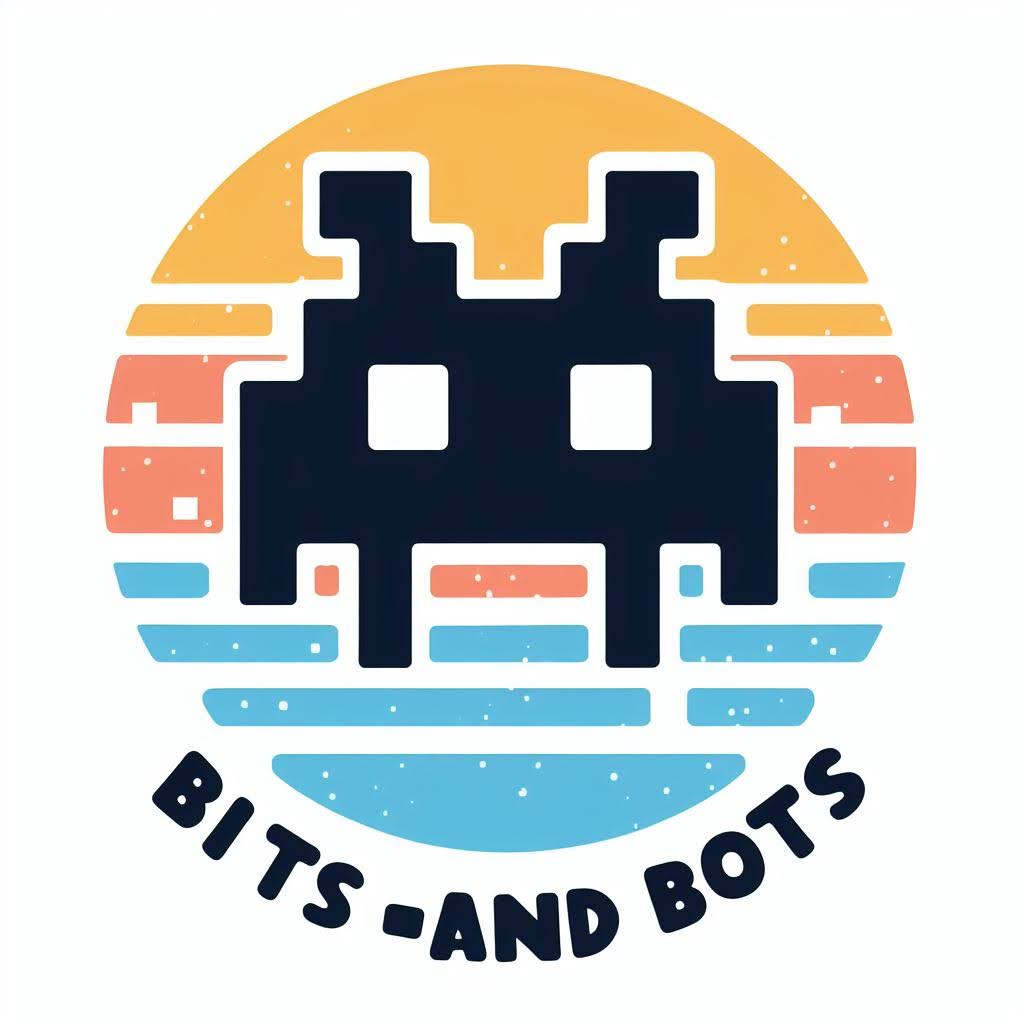 |
Nominees: Susanne van den Eijkel and Lotte Wijsman, Nationaal Archief (Netherlands) and Francesca Mackenzie, The National Archives (UK) Bits and Bots is a study group teaching digital archivists coding skills, currently focussing on Python and front-end development. The group is open to all and everyone, including the organisers, are learning together as a community instead of in isolation. Digital skills are increasingly important to digital preservation and it is not surprising that “Computer Programming” is listed as one of the skill elements in the Digital Preservation Coalition’s Framework. Coding can be daunting, Bits and Bots tackles this challenge, making learning fun by teaching coding through the creation of games. The community consists of 47 members from 5 continents. |
The Digital Repository of Ireland Award for Research & Innovation
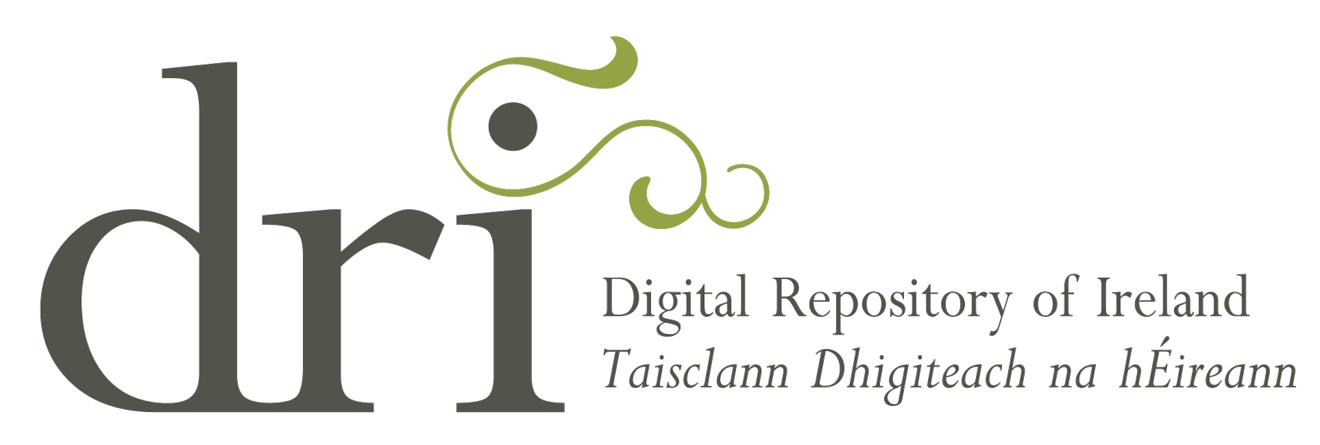
This award acknowledges exceptional contributions to practical research and innovation activities. The prize in this category consists of a trophy to be retained by the recipient, certificates for participating individuals, and a cash prize of £1000 payable to the lead nominee’s institution.
The DPC Member vote is now open!
DPC Members, login to reveal the link to the voting form and select your first and second choices for this category.
Votes must be cast online by 1200 (BST/UTC+1) on Monday 15th July.
Each Full Member, Associate and Allied Organisation of the DPC may submit one vote.
Meet the finalists
Digital Archiving: Storage media prioritization methodology and tool
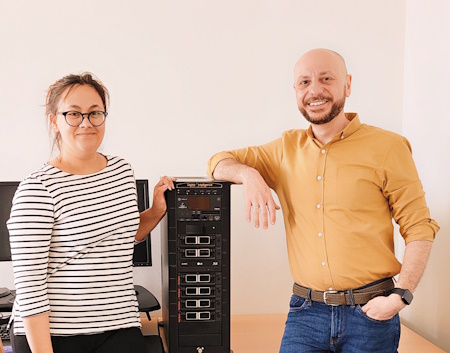 |
Nominees: Archives and Special Collections, University of Glasgow The storage media prioritization methodology and tool provide a simple way to gauge the well-being of various types of computer storage – both contemporary and legacy. They are primarily geared towards helping digital archivists prioritize the processing of computer storage media, but anyone can use the tool to quickly assess if a storage medium is at-risk of data loss. The tool generates a prioritization score based on the type of storage, the conditions in which it has been kept and other criteria collated from resources generated by the digital archiving and preservation community. It has been developed by Archives & Special Collections at the University of Glasgow and is available for free under a Creative Commons license. |
Disentangling Digital Preservation Risk with CHARM
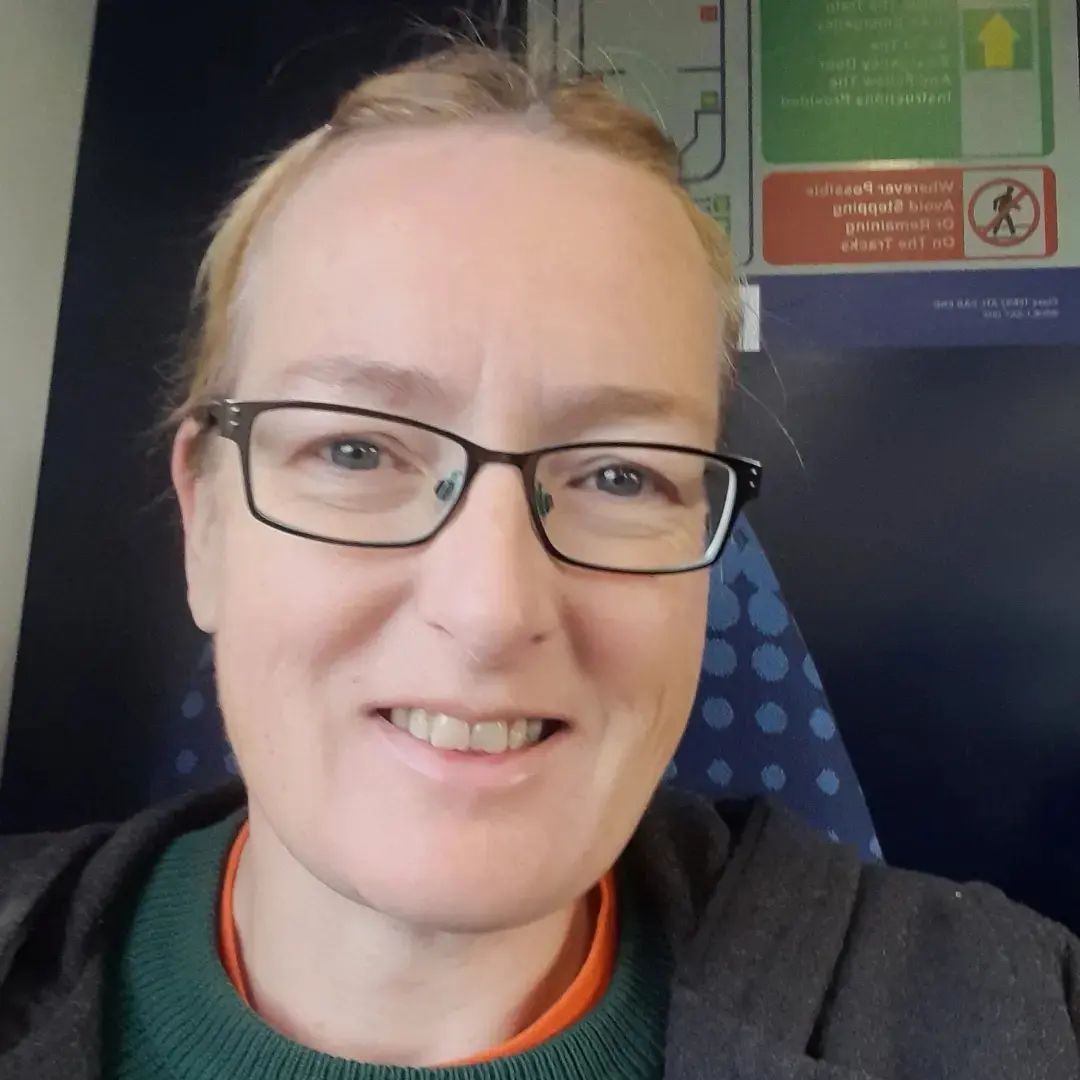 |
Nominee: Dr. Maureen Pennock CHARM contributes a new disciplinary solution to the wicked problem of digital preservation risk. Delivered through an innovative practice-based PhD research programme that blends digital preservation thinking with design science and risk science, CHARM explores and represents the nature and complexity of digital preservation risk in the field’s first unified and holistic digital preservation risk reference model. It brings clarity to its conceptual nature and inherent complexity, exploring the importance of contextualization for risk characterization and presenting not only a rigorous academic exploration, but also practical methods and re-usable templates for scenario-based digital preservation risk identification and assessment in organisations. |
Improving access to and sustainability of the Pacific and Regional Archive for Digital Sources in Endangered Cultures (PARADISEC)
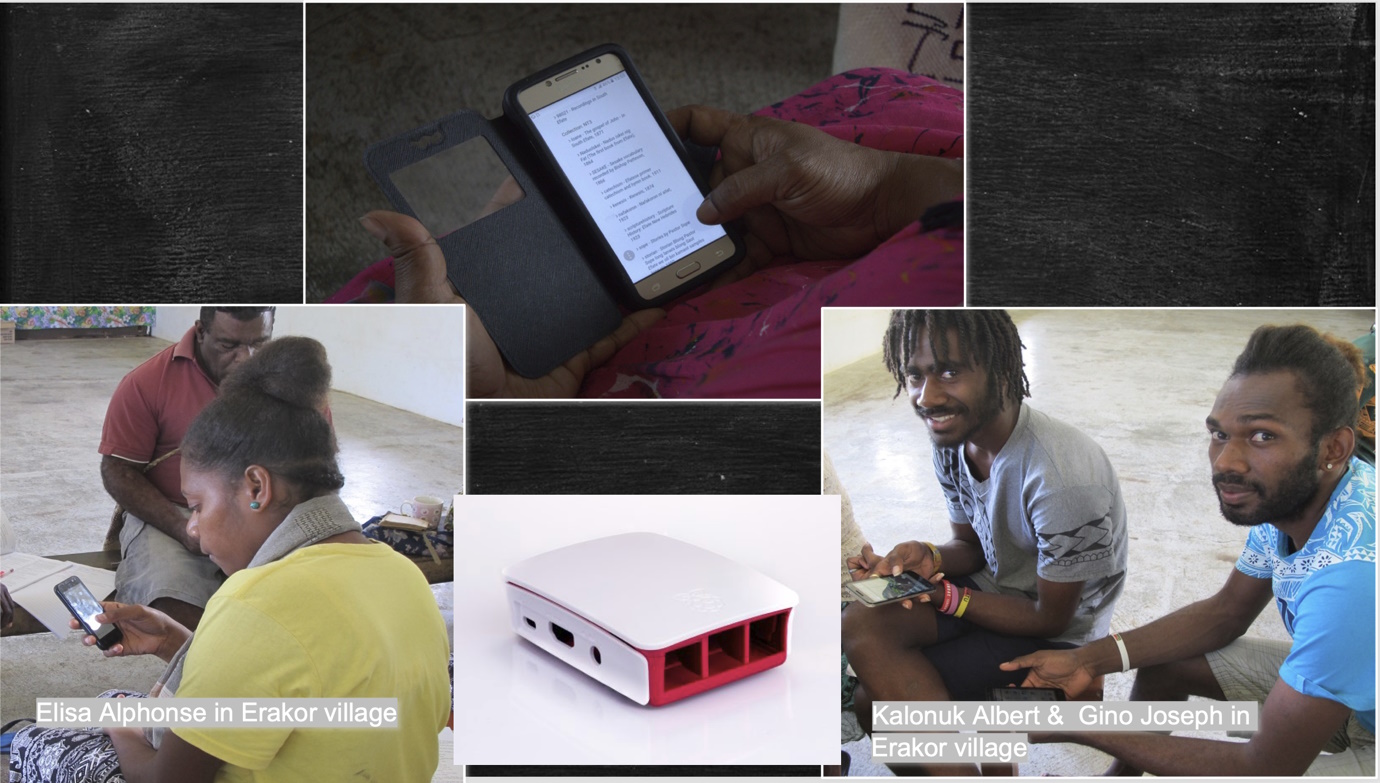 |
Nominees: Pacific and Regional Archive for Digital Sources in Endangered Cultures (PARADISEC) The Pacific and Regional Archive for Digital Sources in Endangered Cultures (PARADISEC) holds records from 1,370 small languages, mainly audio recordings made since the 1950s. It has 16,000 hours of audio in 230 terabytes of material in 428,000 files stored in Amazon S3. This year’s initiative is to move all items to Research-Object Crate format. RO-Crate allows the whole collection to contain self-describing items so makes it more durable over time, and less reliant on a catalog that is at risk of failure, with consequent metadata loss. This also means they can then be delivered on wifi from a Raspberry Pi device, even in remote offline locations. |
Play It Again: Preserving Australian Videogame History of the 1990s
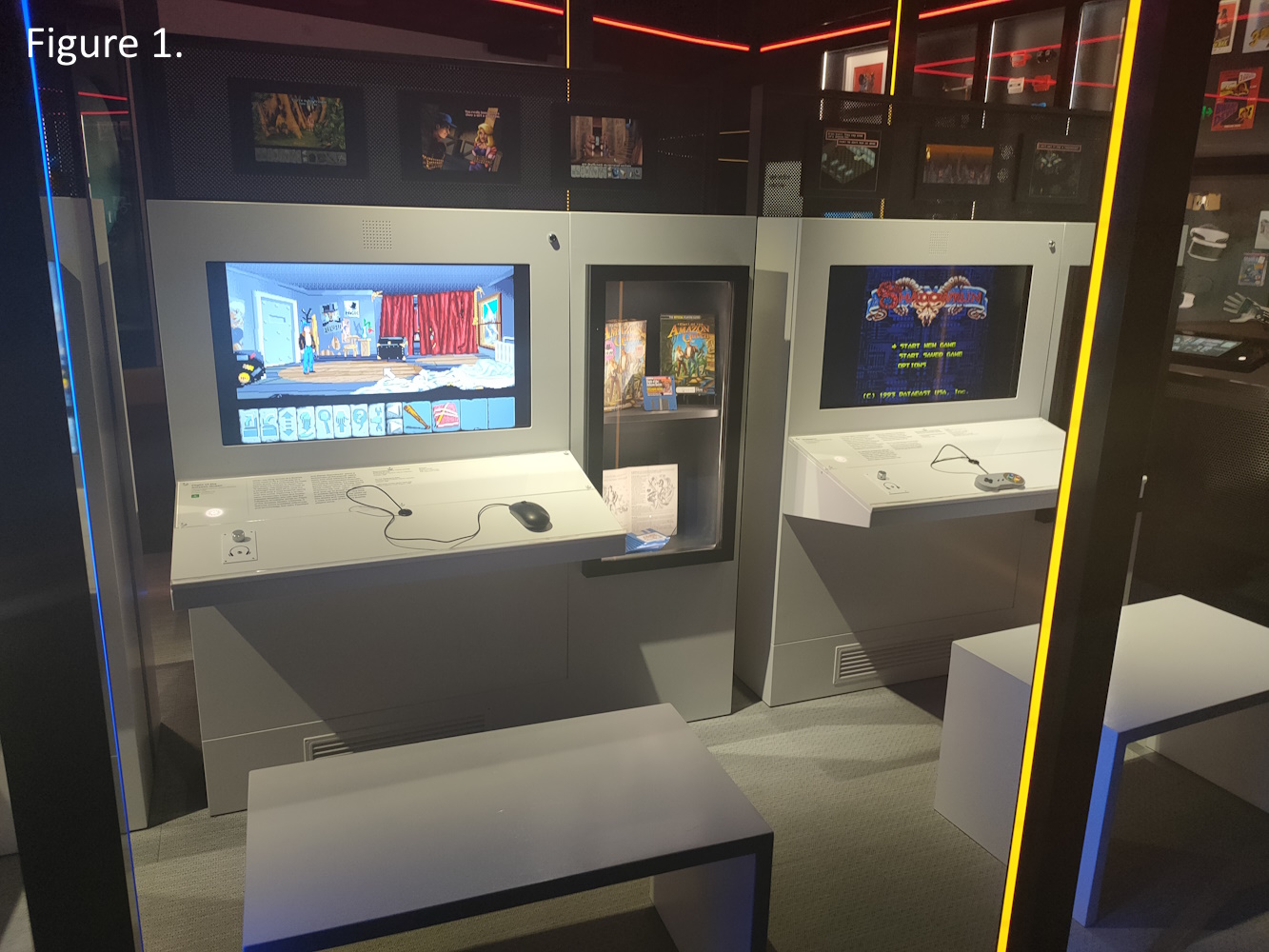 |
Nominees: Australian Research Council, Australian Centre for the Moving Image, AARNet The Australian videogame preservation project “Play It Again” is a competitively-funded Australian Research Council (ARC) Linkage Project, involving Swinburne and RMIT universities and partners ACMI and AARNet. The project aimed to preserve and emulate fifty significant Australian videogames from the 1990s, exhibiting six selected games alongside key information on their production and consumption histories and preservation tools used. The project evaluated the Emulation-as-a-Service Infrastructure (EaaSI) platform’s efficacy for accessing born digital artefacts and used it to make historic games playable for ACMI visitors. The project laid the foundations for the AusEaaSI emulation network and Community of Practice (launched February 2024). |
The International Council on Archives Award for Collaboration and Cooperation
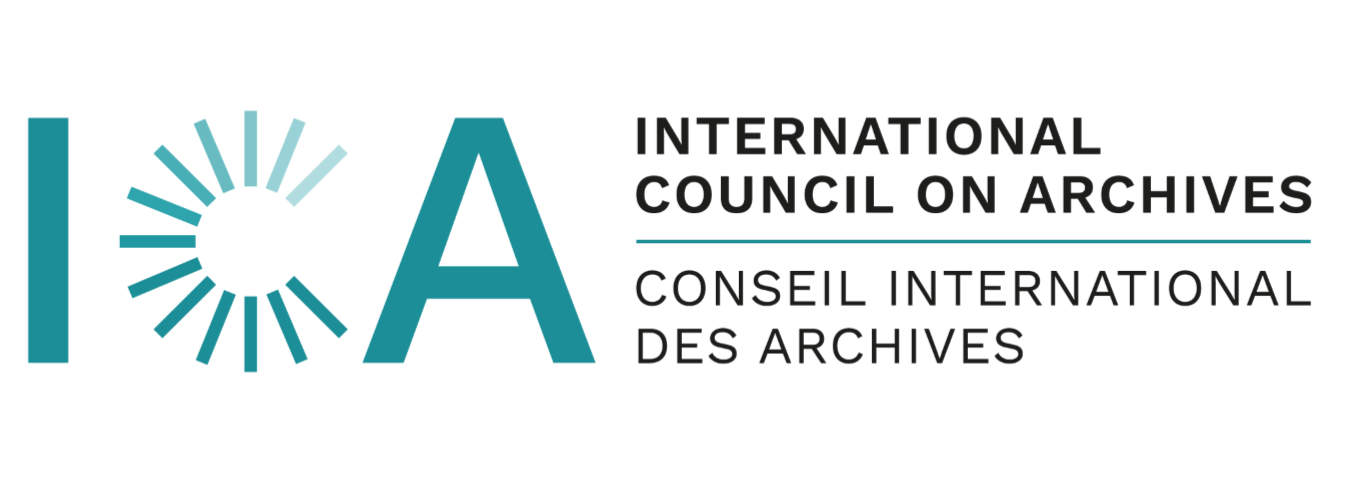
This award celebrates significant collaboration across institutional, professional, sectoral and geographical boundaries which have had a demonstrable and positive impact on digital preservation. The award includes a cash prize of £1000, a trophy and certificates.
The DPC Member vote is now open!
DPC Members, login to reveal the link to the voting form and select your first and second choices for this category.
Votes must be cast online by 1200 (BST/UTC+1) on Monday 15th July.
Each Full Member, Associate and Allied Organisation of the DPC may submit one vote.
Meet the finalists
Collaborative models of care: preserving Australian First Nations digital cultural heritage
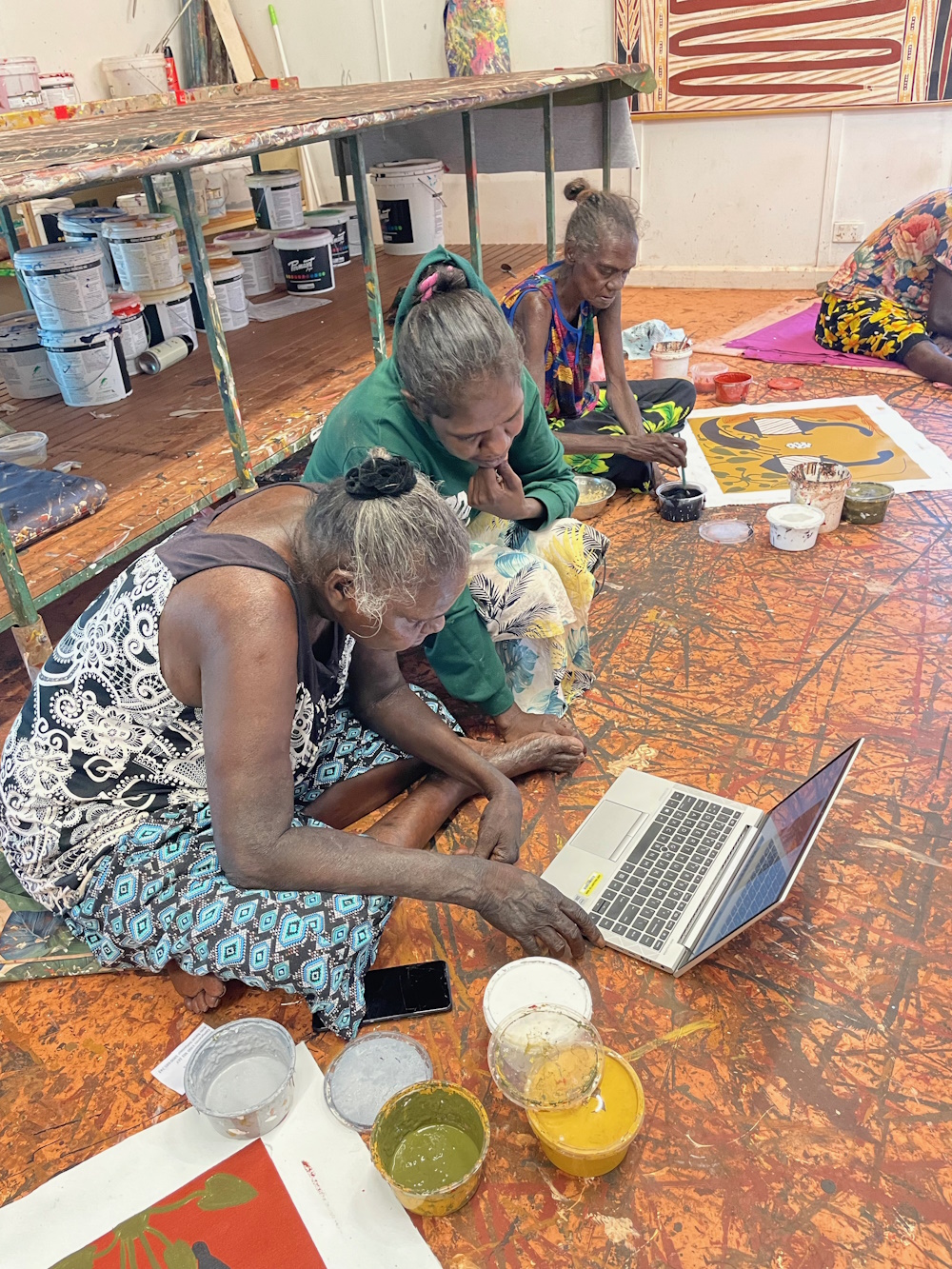 |
Nominees: Bula’bula Arts Aboriginal Corporation This project was designed to provide a ‘best-practice blueprint’ for non- First Nations professionals wanting to contribute their digitisation and digital preservation skills, knowledge and expertise towards the care of digital cultural heritage held by and produced in Australian First Nations communities. Originally designed by Rebecca Barnott-Clement in the role of Digital Preservation Analyst and subsequently supported by Coby Edgar of Agency Projects, the project involved digitisation of archival assets for Bula’Bula Art Centre and the completion of a DPC RAM assessment (a tool to assess an organisation’s digital preservation maturity) for Bula’Bula Art Centre and Milingimbi Art Centre. |
Kip-Agenge: Reimagining Partnerships for Digital Preservation Keiyo Indigenous Knowledge for
Future Generation
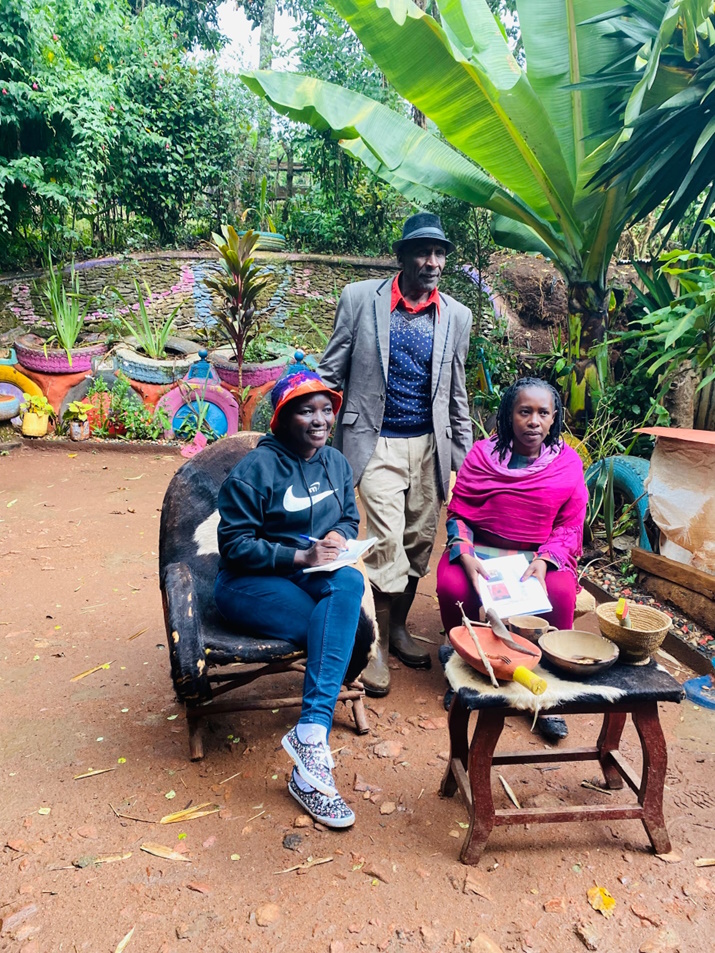 |
Nominees: Gladys Kemboi and Carolyn Cherotich, Community Champions in Kenya, Philip Langat and Wilson Kangogo, Lazarus Rutto and Dr.Isaac Tarus, Elders and Indigenous knowledge holders, Sarah Cummings of KM4Dev and Chris Prom, University of Illinois Urbana-Champaign, Global partners include. The elders and Indigenous holders between 80-120+ years old are worried that their generations are gone; they stated death is approaching and nearing every day. One Indigenous knowledge holder noted, “we are aging, all our knowledge generations are gone. We are following them. Speed up these ideas on digital preservation of our Indigenous knowledge, tomorrow we may not be able to speak. The time is now to digitize and preserve our knowledge for the future generations”. The awakening call: What happens when the body of knowledge walks away? During the iPRES 2023 conference on digital preservation hosted by the University of Illinois Urbana-Champaign, a “heart to heart conversation” led by Chris Prom and iSchool faculty including Karen Wickett and Travis Wagner walked the talk and assured Kip-Agenge that barriers to digital preservation and climate change constraints can be lowered. The partnership extended beyond the conference, as Kip-Agenge built knowledge partnerships with the University of Illinois Urbana-Champaign for the digital preservation and sustainability of Keiyo Indigenous knowledge for future generations. Community champions, leaders, elders, Indigenous knowledge holders, and mentors like Dr. Isaac Tarus, Prof. Rose Chepyator Thompson, Ivan Butina and Rocio Sanz of UNICEF, and Stacey Young of USAID; alongside dedicated community champions like Cosmas Langat, Gloria Chumo, Julie Nyambok, Gladys Kibet, and Elizabeth Wangari from Kenya; Adamu Abdullahi, Folashade Adeboju, and Naomy Harun from Nigeria; Paul Atsu from Ghana; and Epiphane Adjadji from Benin have been at the forefront advocating for the digital preservation of Indigenous knowledge for sustainable development. |
NDSA Staffing Survey Working Group
 |
Nominees: National Digital Stewardship Alliance (NDSA) How practitioners are advocated for and trained, and how programs are staffed, organized, and evaluated, is arguably more important to successful, sustainable digital preservation than any technology. The National Digital Stewardship Alliance (NDSA), an international membership organization, recently conducted its third Staffing Survey and published the results in August 2022. A collaborative, international volunteer Working Group undertook a significant redesign of the past surveys to gather information about the current state of digital preservation staffing, creating a broader and more detailed picture than ever before. Outcomes included an open dataset and report, with significant impacts for practitioners and future researchers. |
The Finalists
Click the listing to discover the great work of each of our 2024 Digital Preservation Awards Finalists!
|
THE FINALISTSCollaborative models of care: preserving Australian First Nations digital cultural heritage |
THE FINALISTSComing soon! |
|
THE FINALISTSComing soon! |
THE FINALISTSComing soon! |
|
THE FINALISTSComing soon! |
THE FINALISTSComing soon! |
National Digital Newspaper Library of Mexico: preservation of digital heritage

The HNDM is a project that addresses different needs. Through digitization, printed documents are protected by limiting their consultation; digital documents are generated and through an access platform they are distributed to users regardless of their geographical location. and through the implementation of digital preservation, a methodology and workflows are incorporated that provide evidence of preservation and allow the generation of authentic and reliable digital objects.
The images in the HNDM result from a series of processes that include evaluation and assessment, digitization, image processing, distribution and access on a web platform, incorporating documented digital preservation processes at each stage, facilitating the task of incorporating information packages into the permanent archive and its management.
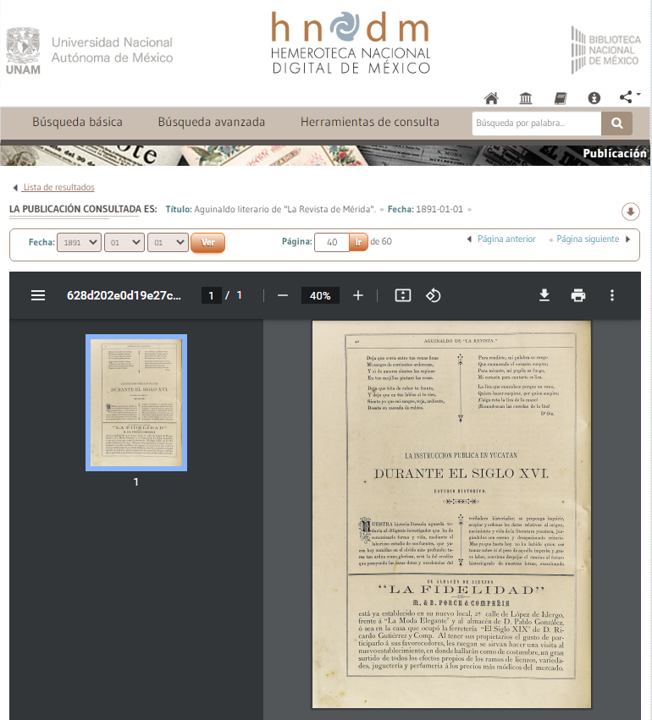 Both types of files, digitized and born-digital, undergo digital processing, consisting of several phases including metadata addition, validation and verification of digital objects, generation of checksums, creation of submission and dissemination information packages. A fundamental part of the incorporation of preservation processes in the HNDM was the automation of processes. For this purpose, software tools were created to perform preservation-related processes with minimal impact on the original digitization and access workflows.
Both types of files, digitized and born-digital, undergo digital processing, consisting of several phases including metadata addition, validation and verification of digital objects, generation of checksums, creation of submission and dissemination information packages. A fundamental part of the incorporation of preservation processes in the HNDM was the automation of processes. For this purpose, software tools were created to perform preservation-related processes with minimal impact on the original digitization and access workflows.
The metadata insertion software tool allows embedding descriptive, technical, and administrative metadata into digital objects. These metadata were selected following a rigorous registration of the minimum data necessary to describe a periodical publication. The metadata originally generated in MARC format are converted to Dublin Core and inserted into preservation and distribution images. Once the preservation digital objects are in TIFF or JPG format and their distribution version in PDF format, folders are generated according to specifications for creating submission information packages (SIP). Another software tool was developed to validate these specifications, which verifies file structure and naming, validates file formats, checks if images have materiality representation, embedded metadata, and text search capability. Once these verifications are done, it generates manifest files with checksums, creates submission and distribution information packages, and records information in a database.The validation stage and the corresponding programs and tools for this activity are of great benefit to the institution, as they allow the timely detection of errors or deficiencies that could pose problems for digital preservation actions. In a sense, preventive mechanisms were thought out to avoid deficiencies in the structure of digital files.
The last stage of the HNDM workflow is distribution or access. For this purpose, the HNDM web platform was updated with the creation of a Web Management System, a program developed to control and manage images integrated into the HNDM. Its structure allows interaction with the HNM Catalog to extract descriptive data and arrange titles of periodical publications into groups such as thematic collections, geographical location, temporal ranges, and basic search. This system also allows quantifying the number of titles and images entering the platform and detecting the number of users accessing the website to search for periodical materials.
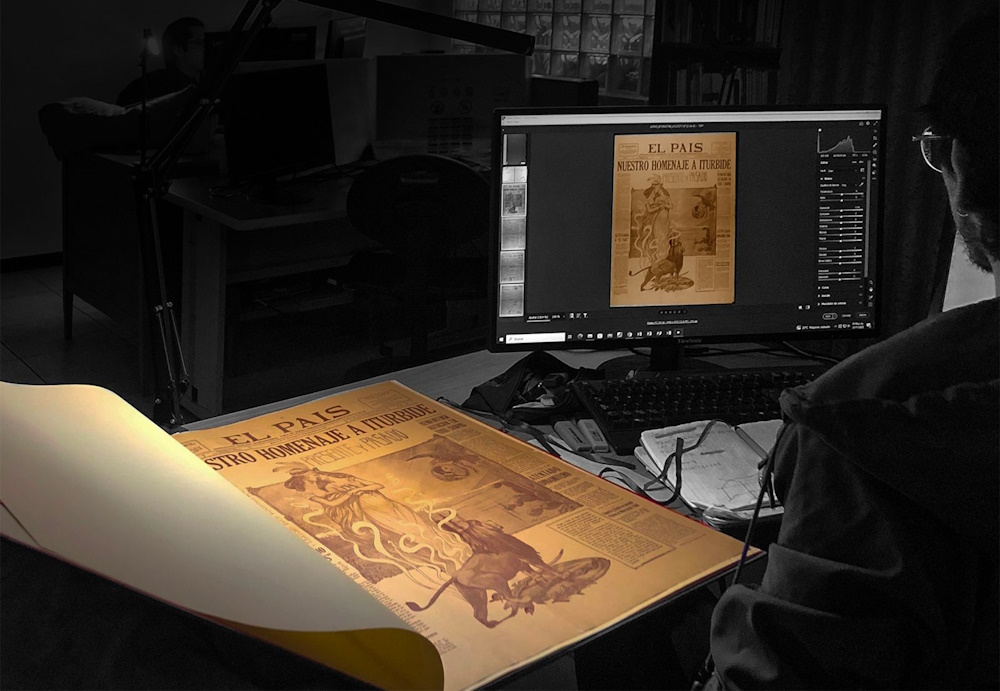 In addition to the programs developed, the team made up of members of the HNM of UNAM proposed to draft normative instruments to share experiences and standardize processes that may be useful for other national and international institutions. Currently available on the internet are the digitization policies and metadata policy of the HNM, and six manuals that form the basis for preservation, digitization, digital processing, and access activities.The implementation of digital preservation in digitization and access workflows has had a significant impact on the institution, as the HNDM provides access to the digital heritage preserved by the institution, allowing researchers, professors, and general public to research, use, and create new content; while adopting a new paradigm, with the aim of ensuring long-term access to authentic and reliable content for future generations.
In addition to the programs developed, the team made up of members of the HNM of UNAM proposed to draft normative instruments to share experiences and standardize processes that may be useful for other national and international institutions. Currently available on the internet are the digitization policies and metadata policy of the HNM, and six manuals that form the basis for preservation, digitization, digital processing, and access activities.The implementation of digital preservation in digitization and access workflows has had a significant impact on the institution, as the HNDM provides access to the digital heritage preserved by the institution, allowing researchers, professors, and general public to research, use, and create new content; while adopting a new paradigm, with the aim of ensuring long-term access to authentic and reliable content for future generations.
Digital Pasifik - Preserving stories, knowledge and tāonga
 Digital Pasifik is part of the Pacific Virtual Museum pilot programme that was officially launched in November 2020. The website serves as a bridge between the holders of knowledge of Pacific individuals, groups, communities, villages, and islands and the holders of the tā’onga (treasures) Museums, Libraries, Galleries, Archives, and Universities. The website shares content from over 800 institutions across the world. Digital Pasifik virtually connects the remotest users in the Pacific with Museums, Libraries, Universities, and Communities thousands of miles away. Allowing users to access Pacific cultural history through a single platform, makes this website a strong candidate for a digital preservation award as its objectives support digital preservation through the collection of stories, knowledge, and memories captured on a digital platform before they are lost.
Digital Pasifik is part of the Pacific Virtual Museum pilot programme that was officially launched in November 2020. The website serves as a bridge between the holders of knowledge of Pacific individuals, groups, communities, villages, and islands and the holders of the tā’onga (treasures) Museums, Libraries, Galleries, Archives, and Universities. The website shares content from over 800 institutions across the world. Digital Pasifik virtually connects the remotest users in the Pacific with Museums, Libraries, Universities, and Communities thousands of miles away. Allowing users to access Pacific cultural history through a single platform, makes this website a strong candidate for a digital preservation award as its objectives support digital preservation through the collection of stories, knowledge, and memories captured on a digital platform before they are lost.
What sets digitalpasifik.org apart from other websites is that it has been designed for Pacific people and the challenges they face in accessing digital collections online. Pacific people have lost generations of their culture, history, practices, ancestors, and artifacts due to colonisation, and these lay in institutions thousands of miles away from their homeland. Digitalpasifik allows Pacific cultural heritage to be visible and accessible for people in and of the Pacific. These tā’onga may never be able to return home, but allowing Pacific people to access digital versions of their history will allow them to reconnect and revive cultural practices.
In some areas of the Pacific, internet access is either limited, unavailable, or unaffordable for users. Digitalpasifik closes the digital divide and developed the website to work fast on low bandwidths ensuring each webpage is under a megabyte, making our website affordable and accessible for users. User testing in the Pacific was important to understand our users and how the website stands up in Pacific networks. Some important feedback we got was ‘My grandma can speak English but can’t read English. When designing a website that is inclusive of the entire Pacific, including over 1000+ languages and represents over 32+ countries/islands. The website has been designed so anyone can navigate it, including our Pacific elders who speak indigenous languages can operate the website by the use of iconography throughout the platform.
The importance of bringing back what was lost and sharing it for future generations is what our user contribution aims to do. This feature allows users to share their knowledge, memories, and experiences and identify family and friends in the collections. Users can correct inaccurate content information and content partners can learn more about their collections through the user. Often these collections are written from a colonial view, this feature allows Pacific people to own the narrative and correct what has been written about them. This feature is where our strengths lie in Digital preservation and is considered by users as the best part of our website with over 100 stories shared on the website User contributions | Digital Pasifik. It connects users to our collections and often serves as a connecting point between users, often stumbling across genealogical ties by mistake.
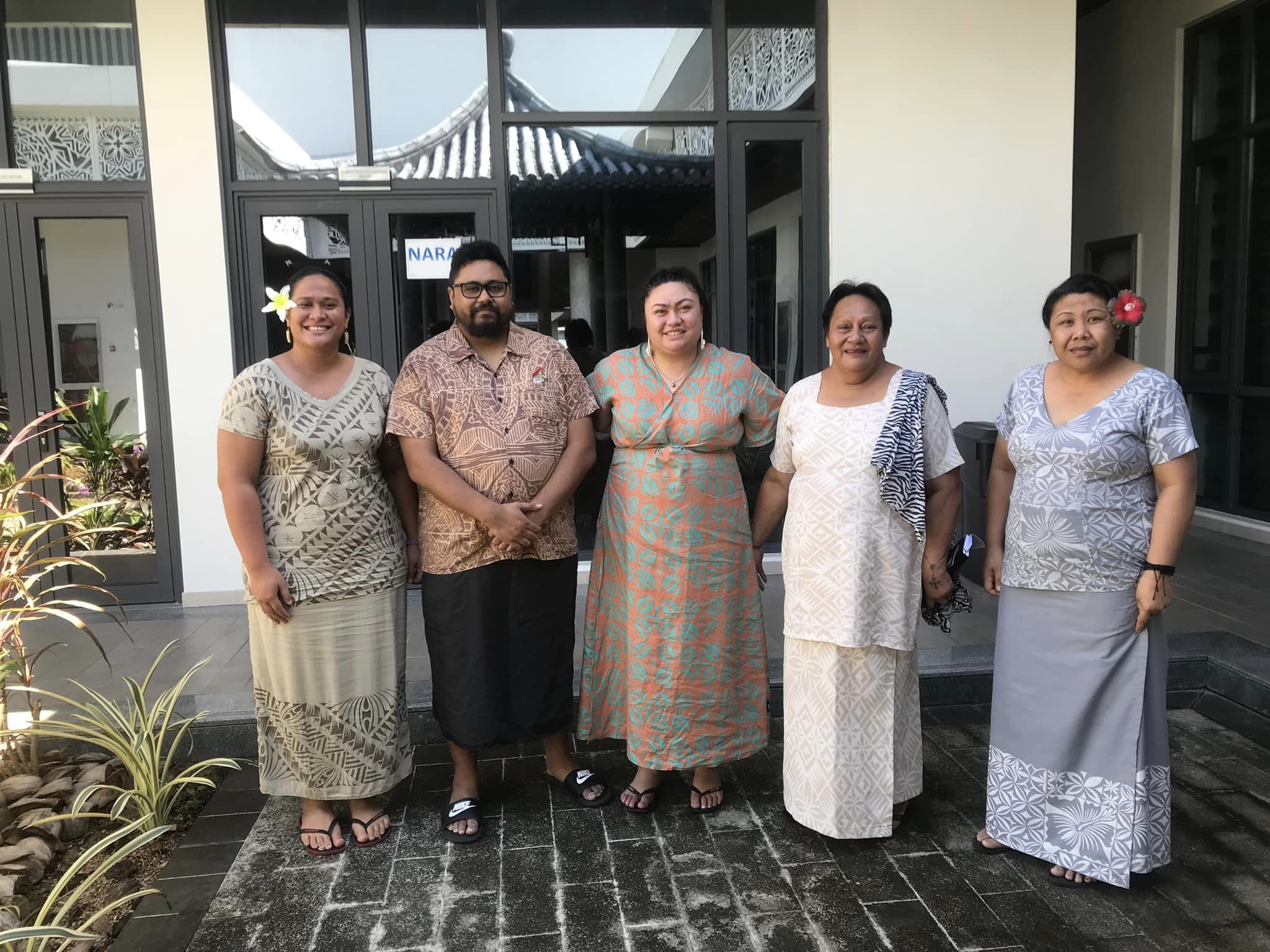
A key part of this project is engaging and creating relationships with cultural heritage organisations and communities in the Pacific. Many of these institutions don’t have the resources to create their own platforms to share their collections online to the standards of larger institutions around the world. Digitalpasifik allows Pacific institutions and communities in the Pacific to share their collections using platforms that are manageable for their institution and free. For example, Digitalpasifik has worked with Solomon Islands National Museum, and they have created a YouTube channel to upload their archival videos. Since their collections are now online, digitalpasifik are now able to share their collections alongside larger institutions around the world. Other Pacific content creators such as Talanoa with Dr T and NGO Pasifika Renaissance who have a large Pacific following and do amazing work to capture culture and heritage of the Pacific using platforms like YouTube and Facebook. These platforms may not but preservation quality but groups like them are capturing the stories from Pacific people that many traditional Museums and Libraries aren’t. Digitalpasifik are honoured that we have the technology within our website to be able to share their YouTube content that many websites and institutions don’t, so that Pacific voices and stories can be accessed and heard.
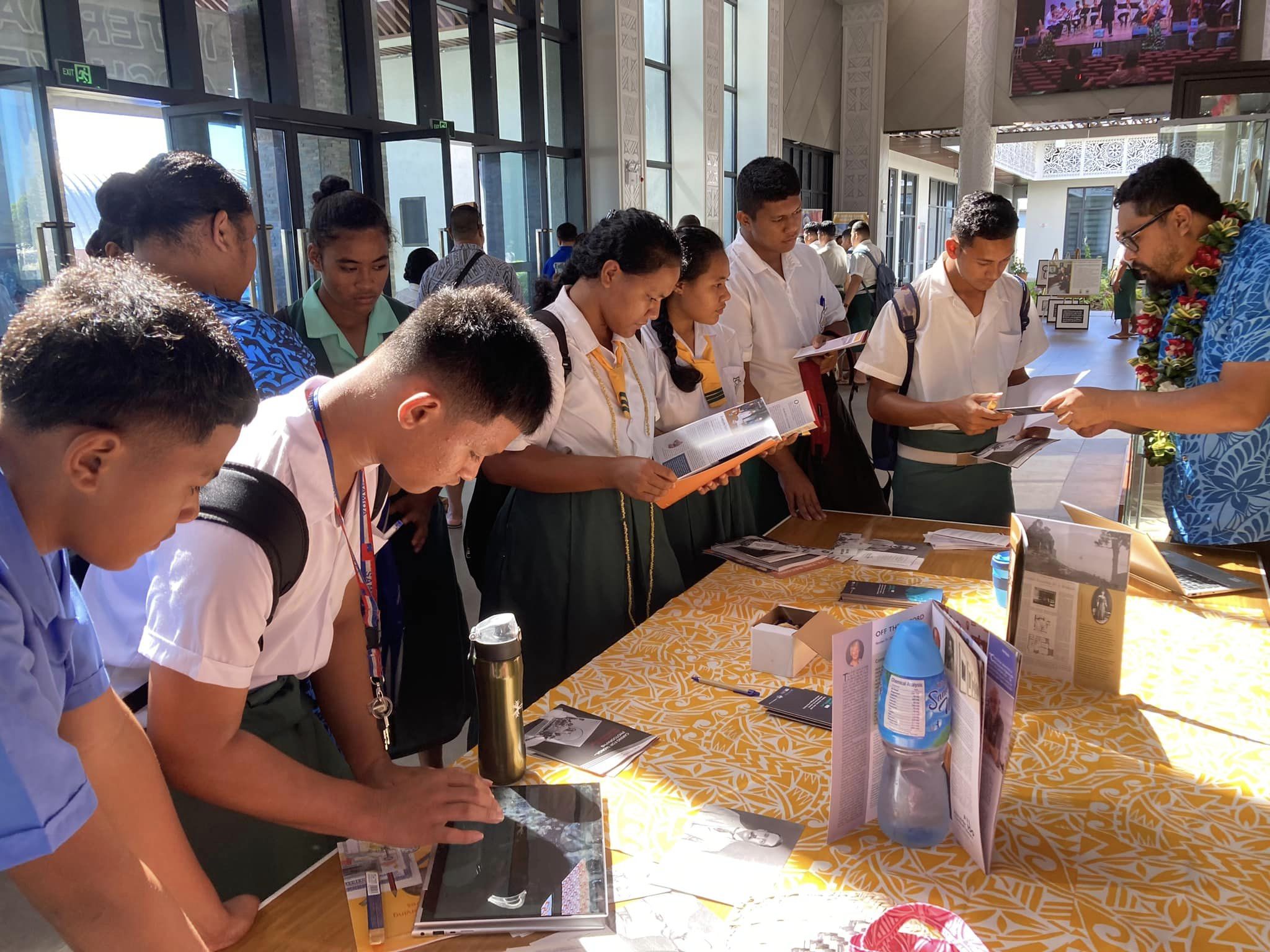
Over the past 4 years, digitalpasifik has been leading the way for cultural institutions to ensure their collections are visible and accessible for the communities their collections belong to. Many Pacific people are unaware that these precious ta’onga exist around the world. The power of giving Pacific people an opportunity to re-unite with digital cultural collections that were once lost empowers them to connect with their own cultural identity.
DDLD – living archive
In 2018, the archive began as a media innovation experimental project supported by a Magic Grant awarded to Alejandra Ibarra Chaoul by The Brown Institute for Media Innovation at Columbia University. Mexico is the deadliest country for reporters that is not at war, with more than 163 killed journalists since the year 2000. However, most people in Mexico have never read the work of killed reporters outside of their immediate communities, which contributes to the fact that killed reporters are not remembered for the work they produced defending democracy. Instead, their legacy often becomes the crime that took their lives.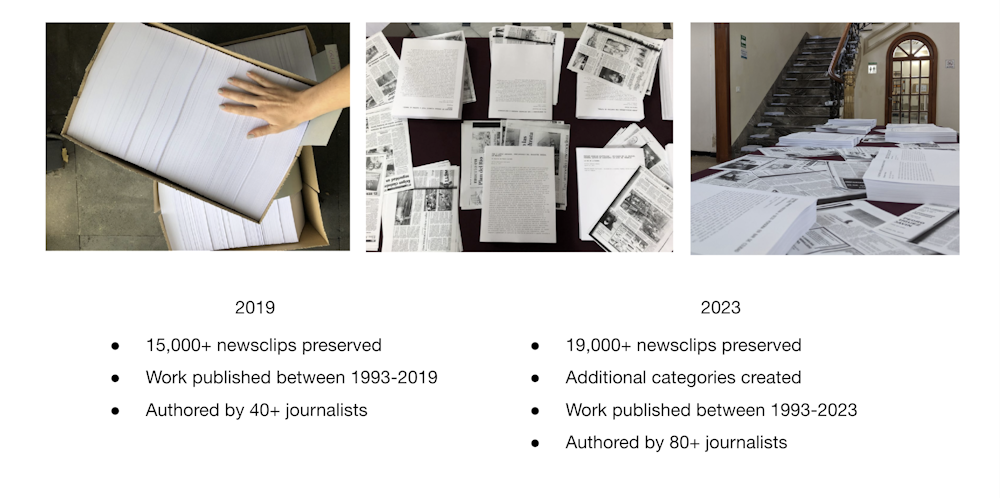
During the first year of the Magic Grant, Alejandra was mainly dedicated to research and exploration. That is how she noticed the work produced by killed reporters in Mexico was hard to find. Most of the reporters who have been killed in Mexico were entrepreneurs and founders of their own media outlets. That also meant they published on blogspot or wordpress websites created by themselves and paid for by themselves too. When one of these reporters is killed, the payment for the domain of their website stops, deleting the entire content they produced. In other cases, reporters published on Facebook directly and some of their posts were flagged as sensitive after their passing, for which they were taken down. In most cases, the fact that reporters published on makeshift media outlets meant they also had other jobs simultaneously and, some reporters, published for several outlets. As soon as Alejandra realized this, she began reaching out to family members and colleagues of the deceased as well as researching on open sources about the lives and careers of killed reporters to establish timelines and pin down sources. Once she was able to identify the places where reporters had published and the time frames when they had, she began applying a diversity of methods to preserve the work. With a small team, she began digitizing what was preserved in the national archive of periodicals; she wrote tailored code for each specific website (which was later perfected by a member of the team) and scraped the content; she downloaded videos from Facebook and YouTube; and had acquaintances of the deceased share their loved ones work if it was kept at home. Throughout the second year working on the archive, Alejandra developed categories to catalogue each single publication, which would help conduct analysis further down the road. She also made sure to catalogue each entry with date of publication, name of news outlet, as well as geospatial data of the place where it was published. She then designed the main dataset to interact with two three more databases: one with information about each individual journalist (such as the age at time of death or information on the homicide investigation), information about the media outlet where they published (if it was corporate or of their own creation), and sociopolitical data on the municipality where the clips were published. By 2021, due to the interest of foundations, victims and researchers, Alejandra founded the Defensores de la Democracia (DDLD) nonprofit in order to continue the work, expand the archive and her team and guarantee the permanence of the archive. For the past two and a half years, the team has now specialized in the upkeeping of the archive and have been able to expand the archive from 14,000 entries to over 19,000. When the archive was first launched in 2019, DDLD had preserved the work of 43 reporters. Today, the archive holds the work of 83 journalists killed in Mexico. The archive has been reviewed by the American Journalism academic journal. It has been covered by news outlets in Mexico and abroad. The Reuters Institute wrote a review about it. And it received the Democratic Innovation Award by the Council of Europe in 2023.
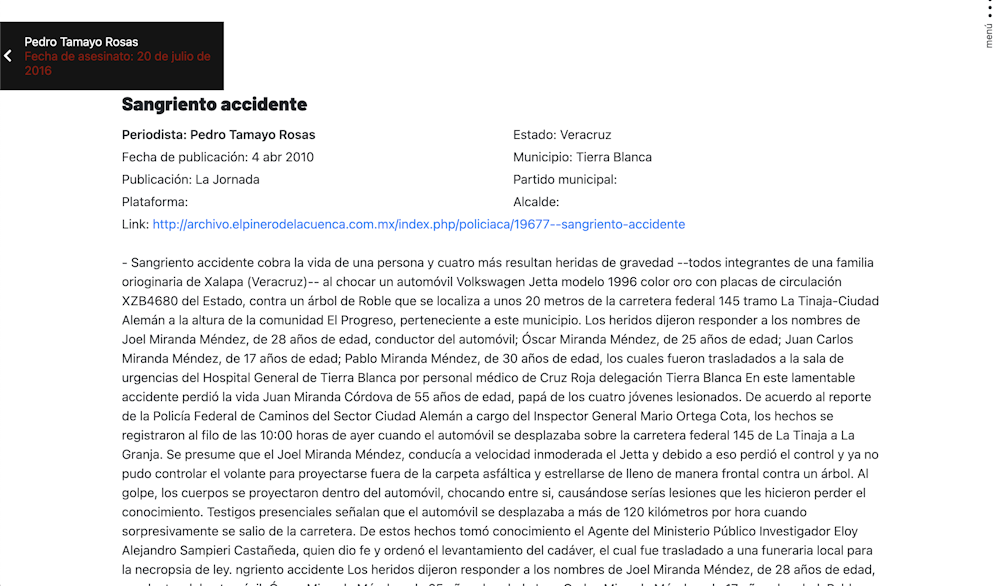
DDLD is currently working on the upkeep of the archive as well as an expansion of the categories for analysis. We’re also developing an oral history repository based on interviews with the deceased acquaintances, which aims to add context, nuance and understanding to the work killed reporters produced and we have preserved. Once enough funding has been secured, a new version of our website will be published where both resources will be interconnected for public exporation.
The DDLD – living archive makes sure killed journalists’ contributions to the strengthening of democracy outlives them and continues to be public and available for remembrance and consultation.






























































































































